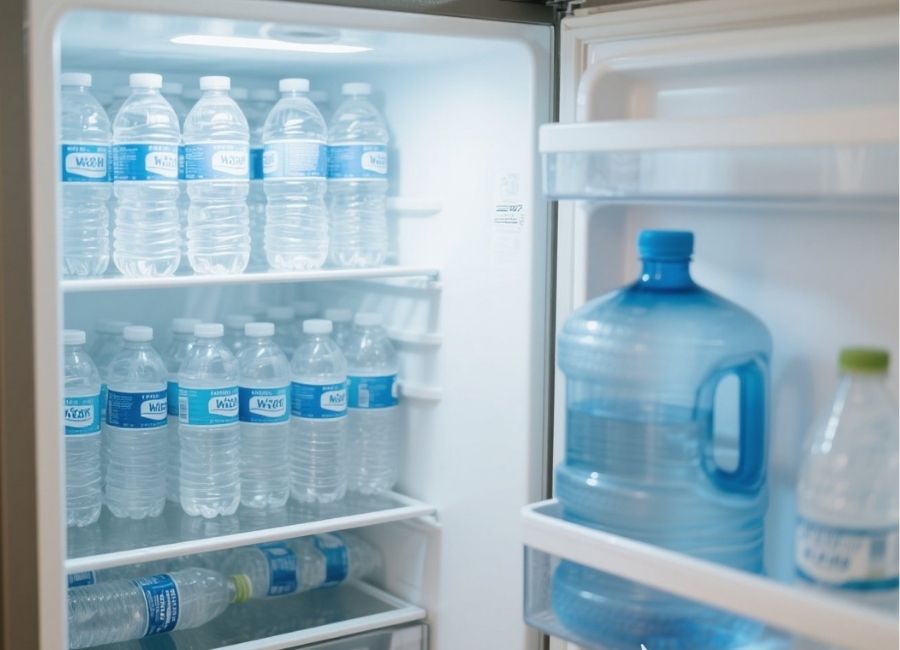Is your fridge stocked with water bottles or jugs of water you filled days ago? Ever wondered if water stored in the fridge has an expiration date or loses its freshness over time? You’re not alone. Many people are curious about how long water remains safe and fresh for consumption when refrigerated.
This blog will address the question in detail, examining factors that impact water’s shelf life when stored in the fridge. You’ll also learn practical tips to keep your water tasting fresh and free of contaminants.
Does Water Go Bad in the Fridge?
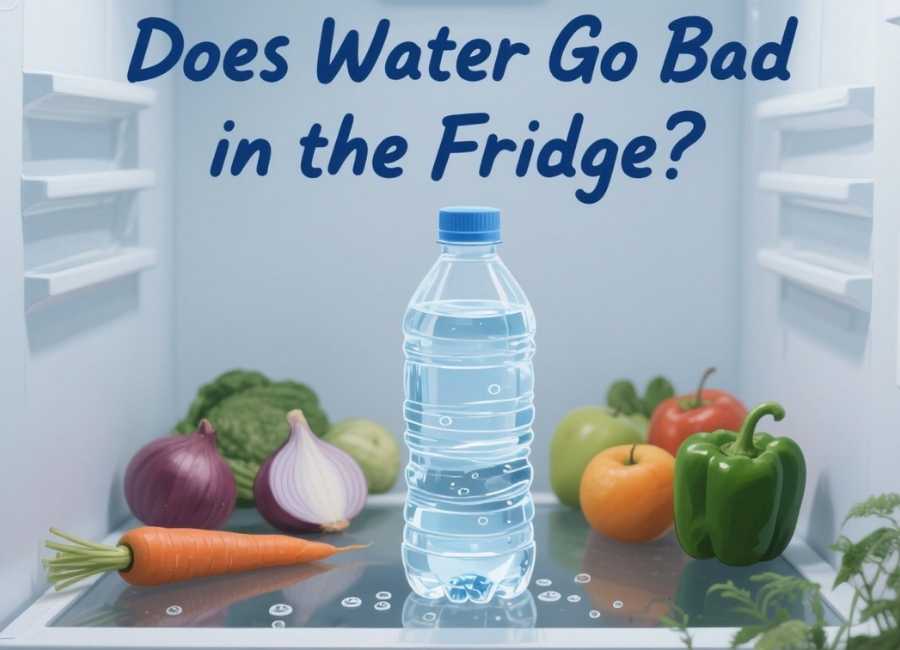
Technically, plain water doesn’t “go bad” or spoil like perishable foods since it doesn’t support bacterial growth or decomposition under normal conditions. However, that doesn’t mean water should be left indefinitely or that its quality remains intact forever.
Contaminants, exposure to light or heat before refrigerating, and improper storage can all affect water’s taste and potential safety over time. While water stored in the fridge is a great way to keep it cool and refreshing, how it’s stored and how long it sits still matter.
The Rule of Thumb for Storing Water in the Fridge
For optimal taste and purity, water that’s been stored in a sealed container and kept refrigerated typically remains fresh for up to one week. This timeframe assumes that the water hasn’t been contaminated and the container used for storage is clean and food-safe.
If you’ve poured water into an open glass or pitcher and left it uncovered in the fridge, the time frame decreases due to exposure to fridge odors and airborne particles. Aim to consume open water within two to three days for the best quality.
Key Factors That Impact Water Freshness in the Fridge
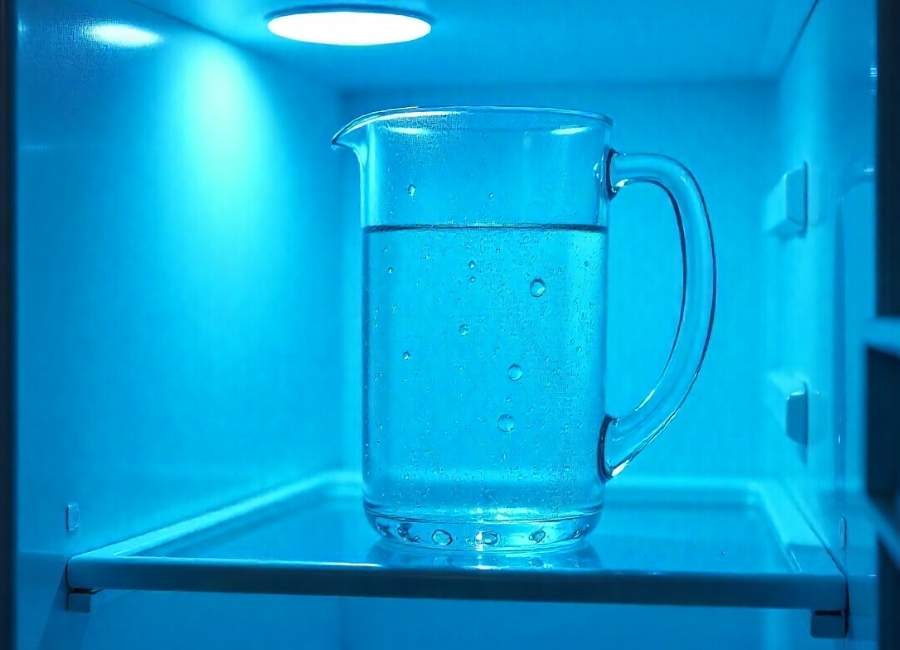
The length of time water stays fresh in the fridge depends on several factors. Below are the main considerations to keep in mind:
1. Type of Storage Container
The container you use plays a significant role in how long water remains fresh. Properly sealed, food-safe containers are essential for preserving water quality.
- Glass vs. Plastic: Glass is considered the best material for storing water because it doesn’t leach chemicals, holds temperature well, and doesn’t impact the taste of the water. BPA-free plastic containers are also a viable option but may affect flavor over time, especially if reused frequently.
- Sealing: Storing water in an airtight, sealed container prevents odors, dust, and fridge contaminants from seeping in.
2. Length of Storage
Though water itself doesn’t degrade, its quality can decline with prolonged storage. When stored in the fridge in sealed, clean containers, water is best consumed within seven days. Beyond that, you may notice a stale or flat taste.
3. Refrigeration Temperature
Consistency in temperature is vital. Maintaining your fridge at or below 40°F (4°C) is key to preserving freshness and reducing the risk of possible contamination.
4. Source of Water
If you’re using tap water, filtration before storing it in the fridge can help remove impurities and improve taste. Bottled water typically has an extended shelf life but should be stored in sealed bottles to maintain quality.
5. Exposure Before Refrigeration
If water is exposed to environmental contaminants before being stored (e.g., left uncovered, or poured into a dirty container), it may degrade quicker. Ensure water is transferred to a clean, sealed container immediately after use.
Practical Tips to Keep Water in the Fridge Fresh
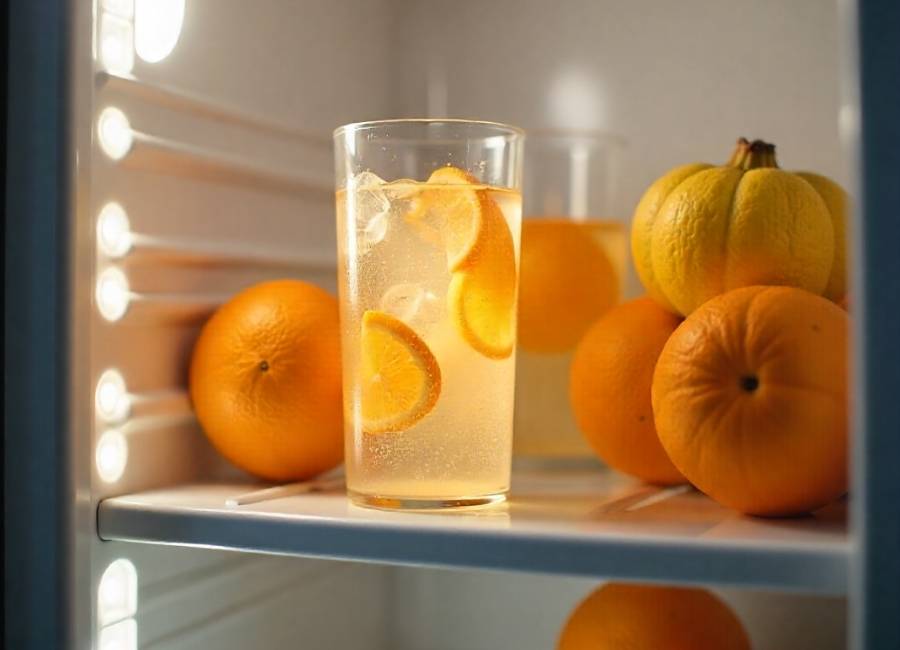
Follow these simple guidelines to ensure your refrigerated water stays fresh and tastes its best:
- Store in Airtight Containers: Use clean glass or BPA-free plastic bottles with tight-fitting lids. Avoid reused containers that are difficult to fully sanitize.
- Don’t Leave Water Uncovered: Open bottles, glasses, or pitchers can absorb fridge odors and bacteria. Always cover or seal containers.
- Keep Away from Strong Odors: Fridge smells from items like garlic or leftovers can alter the flavor of your water. Store your water away from these items to maintain freshness.
- Label and Rotate: If you store water in the fridge regularly, label containers with the date you’ve filled them and follow a “first in, first out” system to ensure freshness.
- Use a Water Filter: A filtration system removes impurities that could affect the taste or quality of the stored water. This applies whether you’re using tap water or filling up jugs.
- Clean Containers Regularly: Wash refillable jugs and bottles with hot water and soap after each use to prevent bacteria buildup.
Bottled Water vs. Tap Water
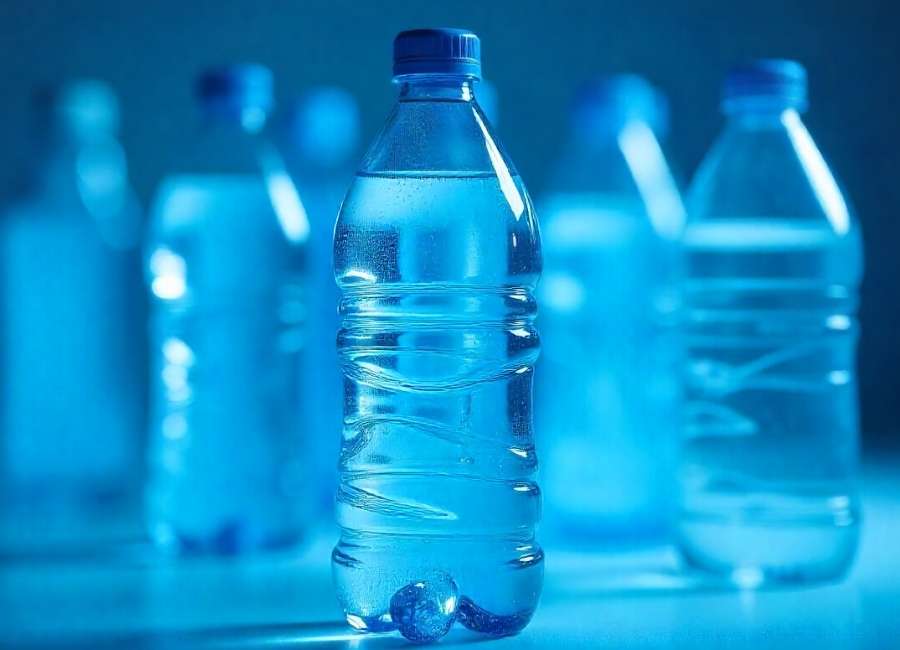
When it comes to bottled water, manufacturers include expiration dates. However, these primarily indicate the point at which the packaging might start to degrade, potentially affecting taste rather than safety.
If you refill plastic water bottles with tap water for fridge storage, be cautious. Over time, chemicals from disposable plastic bottles can leach into the water, especially if the bottle is old or frequently reused. Consider upgrading to reusable glass or stainless steel bottles for long-term storage.
How to Identify If Refrigerated Water is No Longer Fresh
While water contamination is unlikely under proper storage conditions, here are a few signs it’s time to toss refrigerated water and refill:
- Off Odor or Taste: If your water has a stale or unusual odor, it may have absorbed odors from the fridge or your container may not be clean.
- Cloudiness: Clear water turning cloudy could indicate microbial growth or dissolved impurities.
- Sediment or Particles: Visible sediment in water may signal contamination, especially if storage conditions were suboptimal.
When in doubt, it’s safest to discard stored water and refill fresh.
Why Fresh Water Matters
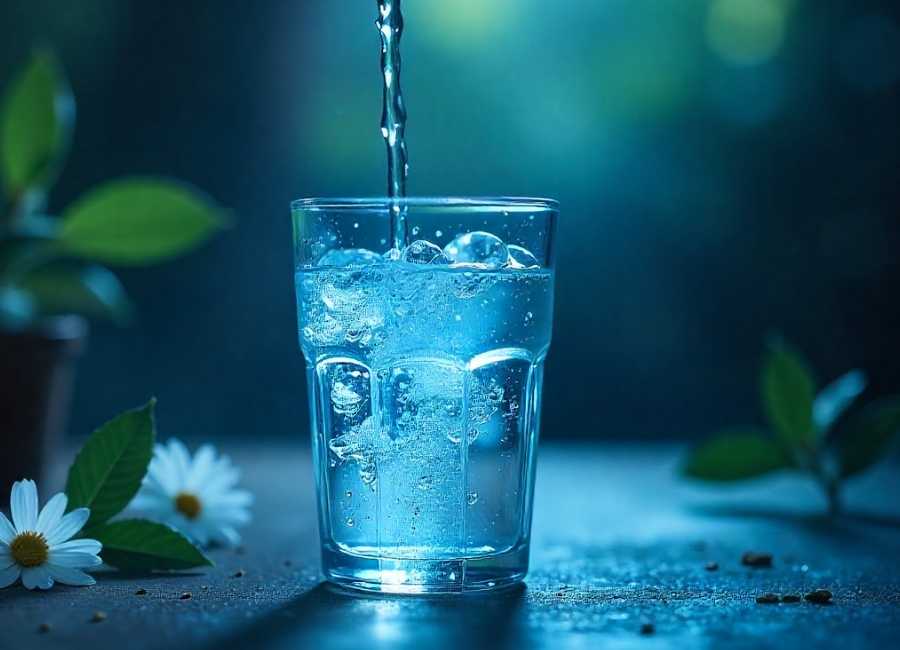
Drinking fresh, clean water not only ensures a great-tasting beverage but also supports overall health. Proper hydration helps regulate body temperature, improves energy levels, promotes healthy skin, and aids digestion. By taking simple steps to ensure your water remains fresh, you’ll make staying hydrated a more pleasant experience.
Final Thoughts on Storing Water in the Fridge
Water stored in the fridge can remain fresh for up to a week under ideal storage conditions, such as using clean, sealed containers and maintaining proper refrigeration temperatures. Taking proactive steps, like filtering water and avoiding fridge odors, ensures you enjoy the best flavor and quality from every sip.
Want to upgrade your water storage game? Consider investing in high-quality, reusable bottles or a filtration system to keep your hydration routine sustainable and effective. For more tips and tricks on leading a healthier lifestyle, explore other resources on our site.







